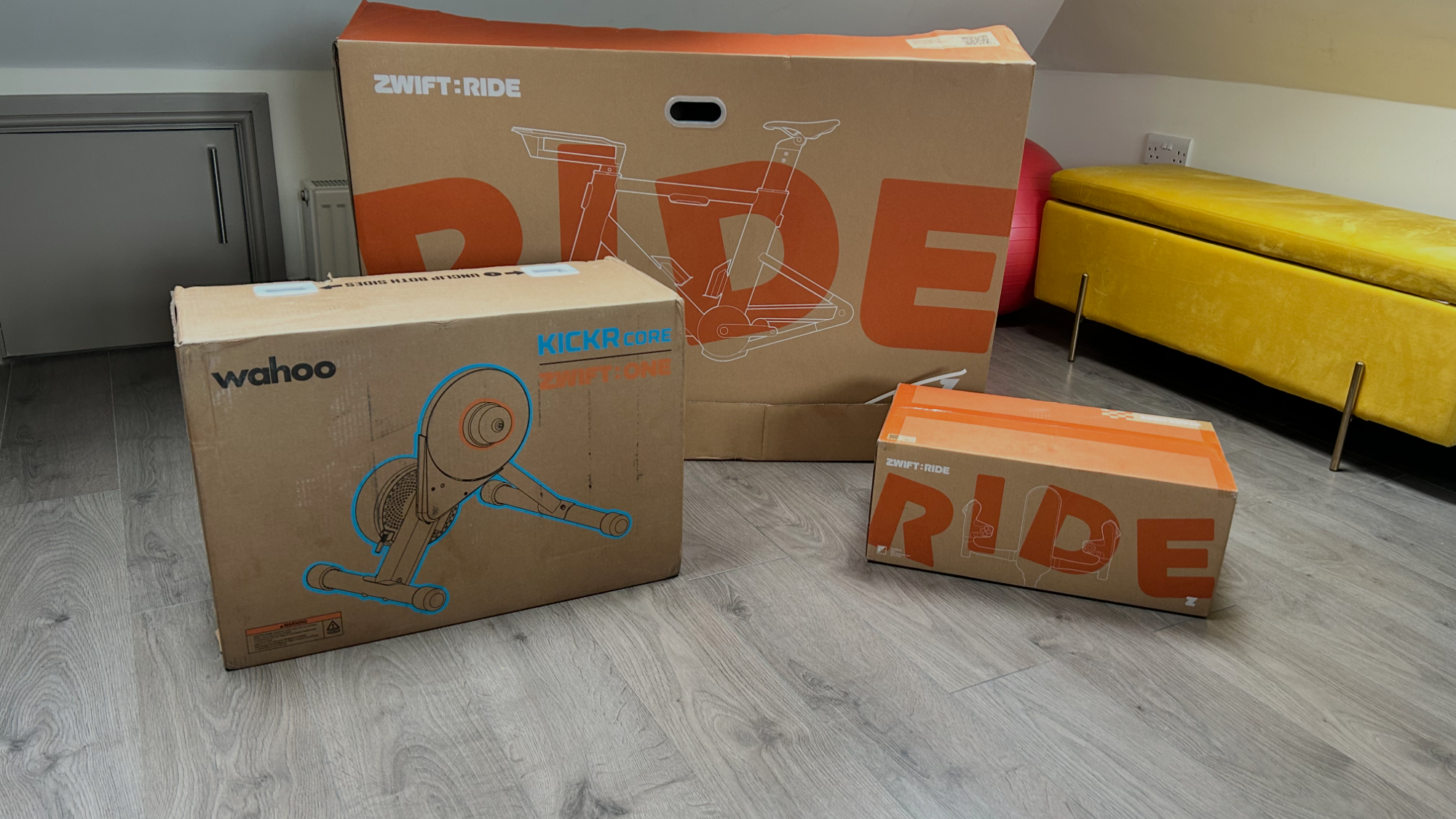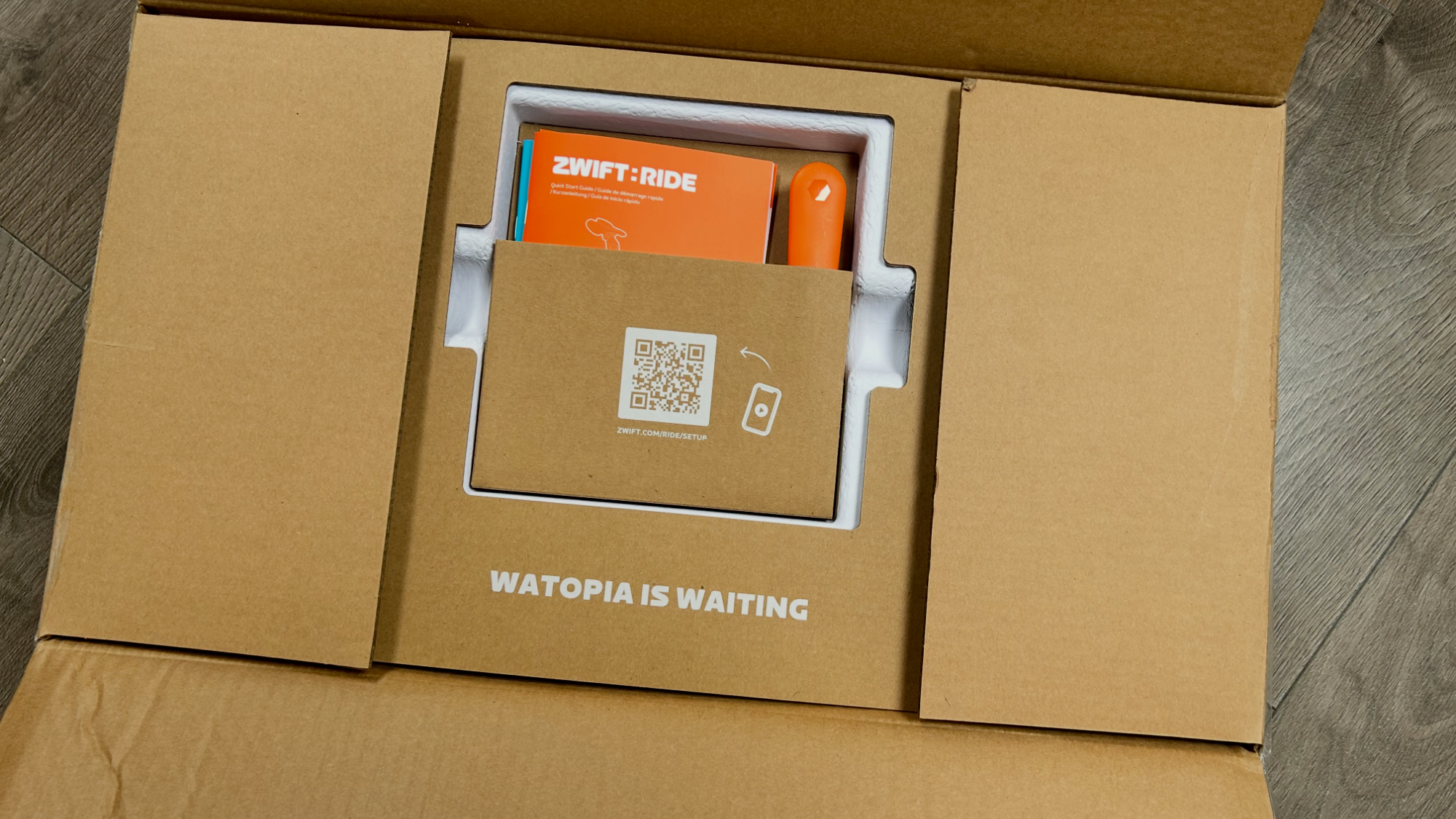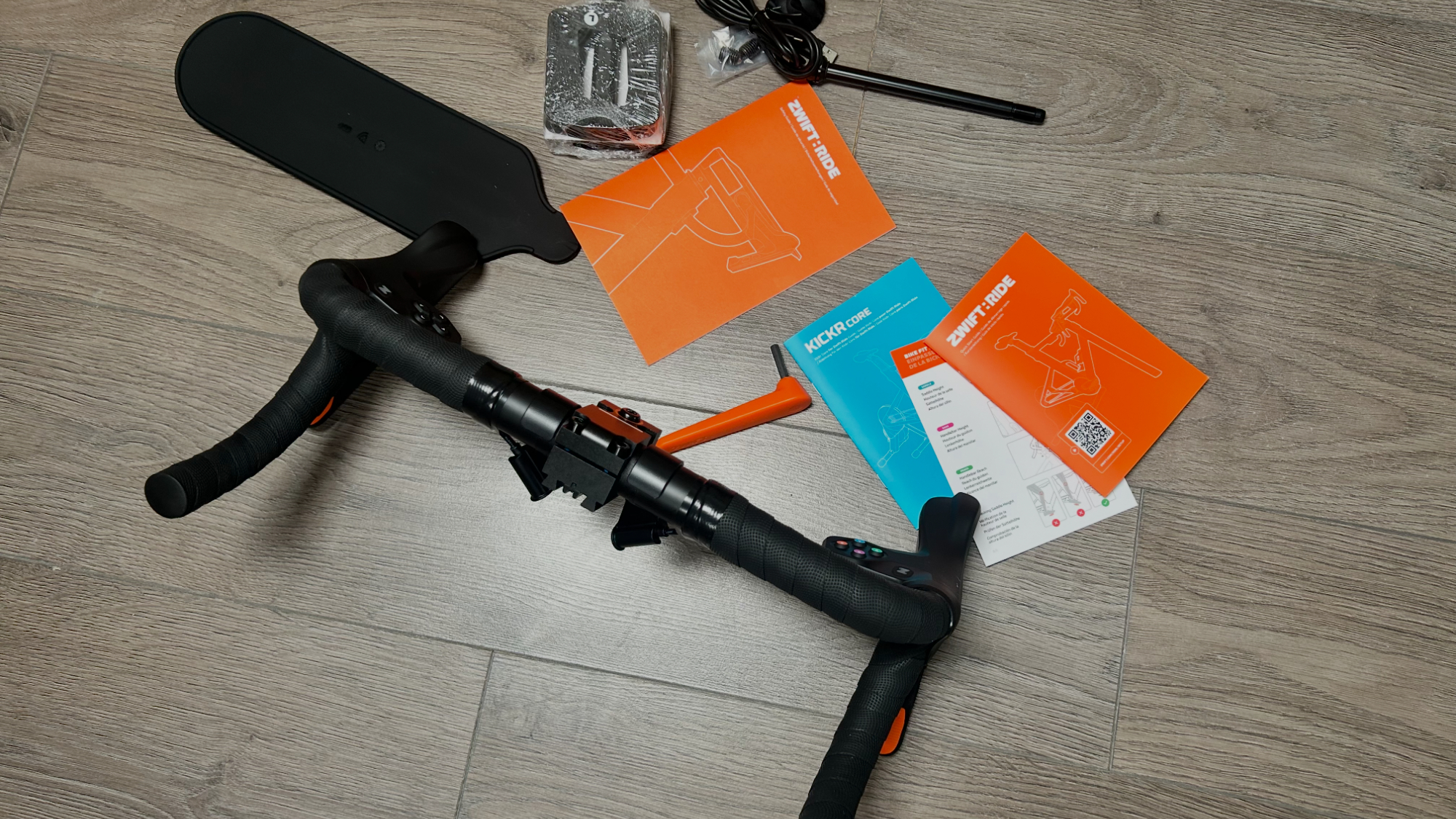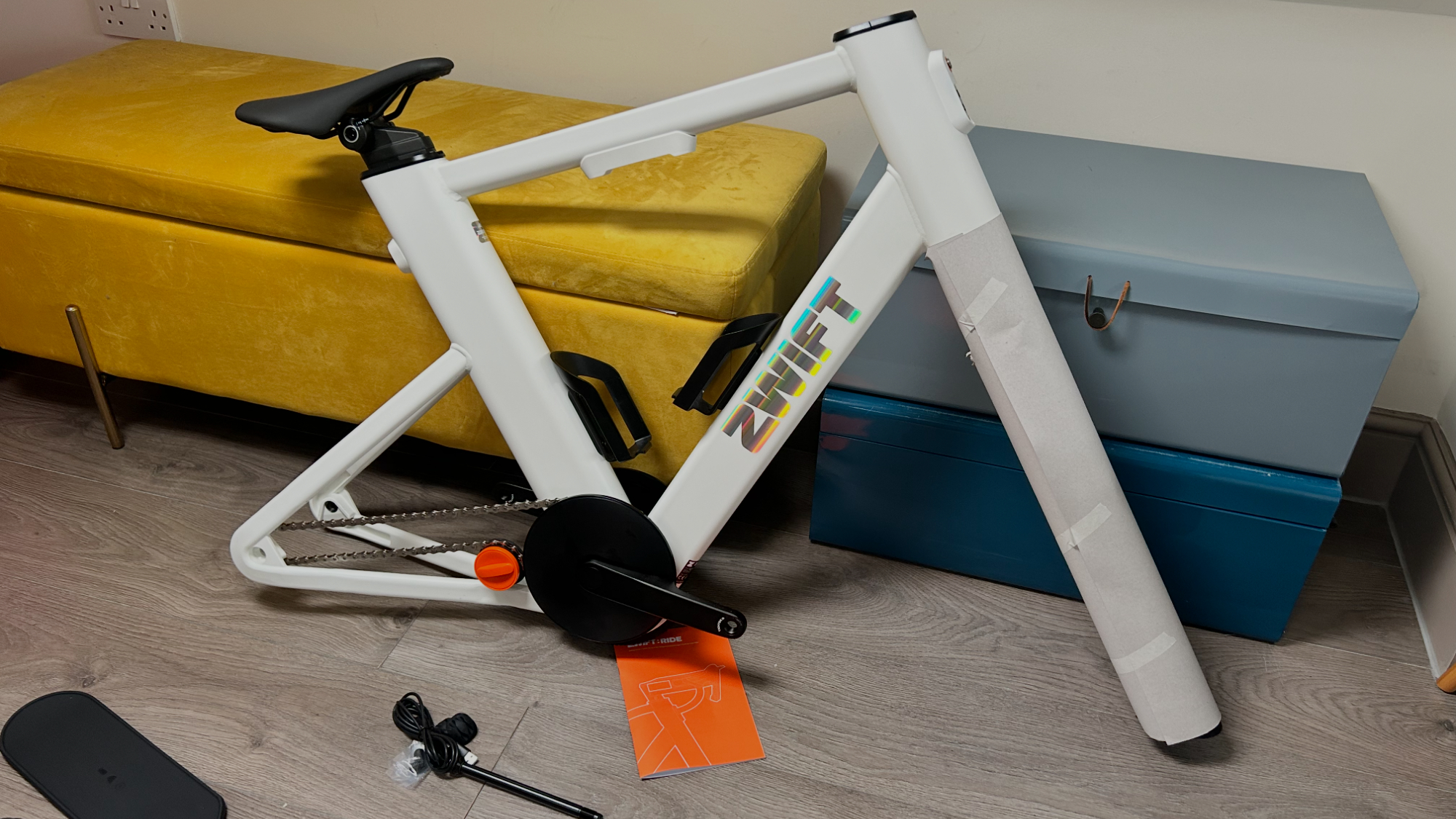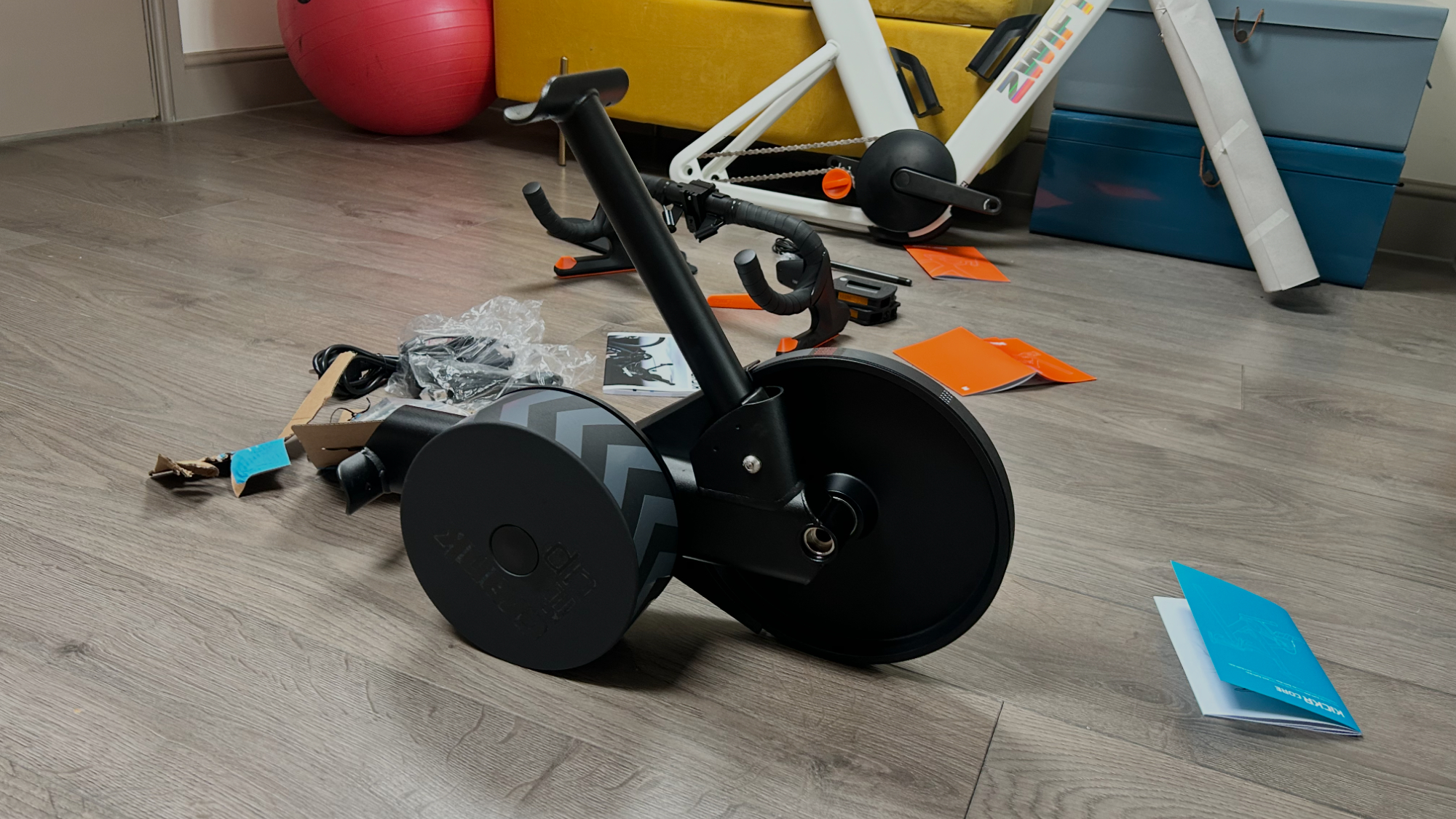The Zwift Ride wants to take the effort out of going for a virtual ride using Zwift’s massively popular virtual training platform. Zwift is a gaming platform that connects to a turbo trainer (for cyclists) or a smart treadmill (for runners) and simulates real-life races using your own speed. It was primarily made for those who love to be on two wheels but is reliant on disconnecting a wheel from your outdoor bike and hooking it up to a turbo trainer, which people might not want to do due to all the extra work, or they may not want to drag a dirty bike into their living rooms.
The Ride indoor cycling setup is a smart bike that gives you everything you need to get the best out of Zwift. It puts controls at your fingertips so you can navigate menus and change gears without moving from the bike frame, which is connected to a Wahoo Kickr Core smart trainer to deliver that more authentic riding feel.
At $1,299.99 / £1,199.99 / AU$2,299.95, the Ride is by no means cheap but does offer a simpler, indoor-friendly way to build a Zwift-friendly setup than tinkering with your regular bike. I spent some virtual riding time with the Zwift Ride to see if it’s going to upgrade your indoor cycling life.
Design and getting set up
The Zwift Ride is essentially made up of three main parts. There’s a pretty sleek-looking, white metal bike frame, which connects to handlebars that host the built-in app controls. Lastly, there’s Wahoo’s Kickr Core smart trainer, which needs to be connected to the chain on the bike frame. The Kickr Core can automatically adjust resistance to replicate changes in terrain on your virtual riding routes.
Those three components come in three individual boxes, with the one housing the Kickr Core the heaviest of the three. All the tools you’ll need are provided here, with an orange frame key taking care of most of the tightening and positioning jobs and can then be concealed in the underside of the bike frame. This makes it easier to grab if you need to adjust the seat or handlebars for another user in your household.
As an indoor bike novice, I put aside an hour to put everything together and that was the right amount of time, with most of the setup here pretty straightforward and well explained in the instructions. The slightly tricky part was engaging the chain with the smart trainer and adjusting the handlebars, but other than that it wasn’t hard work to do this solo.
All set up, the footprint of the Ride is 58cm (23 inches), wide and 136cm (53.5 inches) long, and didn’t take up as much floor space as anticipated. The Kickr Core provides most of the weight here and while relatively easy to shift around, you’re generally going to want to leave this in its place once you decide where you want it. You’ll need it near a plug socket to plug in the Kickr Core and the handlebar-based controllers are chargeable ( they offer up to 20 hours of battery life), another reason to position it closer to a set of plug sockets.
The riding experience
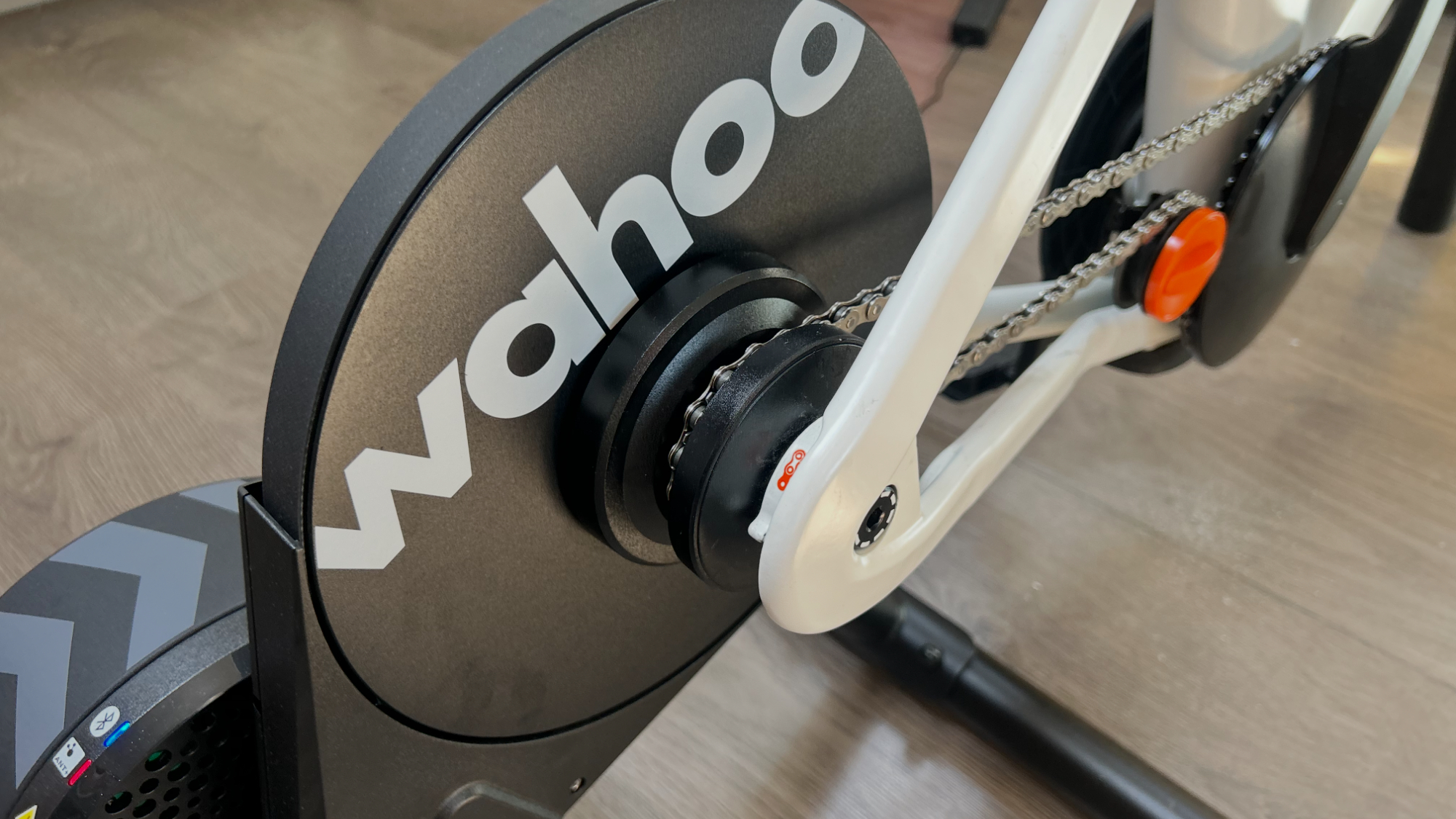
While it looks like a relatively small setup, the Ride is designed to fit riders measuring from 152cm up to 198cm. It’s also suitable for users with a maximum weight of 120kg. I’ve got a pretty slim build and had no problems getting comfortable on the Ride frame or felt the need to make too many adjustments. Those adjustments include setting the handlebar distance from the frame and adjusting the seat height, with a height scale range here of 61cm up to 87cm. While it comes with more beginner-friendly flat pedals, those can be swapped out for road or mountain pedals.
In terms of getting up and riding, you will of course need a Zwift subscription, which does kick you off with some free riding time, but then will cost you an additional $19.99 / £17.99 / AU$29.99 a month to make the most of Zwift Ride. While some of the Ride functionality will work with other virtual training platforms, all of the features available are optimized to work with Zwift’s app.
Once everything is connected, it’s a case of launching the Zwift app, and when you get to the pairing sensor screen you can start connecting the turbo trainer over Bluetooth or ANT+, while the handlebar controllers use Bluetooth. If you also want to add a Bluetooth heart rate monitor into the mix, you just need to make sure you’ve got a device running Zwift that can handle those connections all at once, such as one of the best tablets or the best smart TVs.
I was running Zwift on an Android tablet. While there’s a space on the bike frame to drop your phone onto, you need to pay an additional £39.99 for the tablet holder, which adds more cost.
Thankfully, pairing and setup are pretty painless and then it’s time to ride. The first thing to get accustomed to is having those controls baked into the handlebars. First and foremost, they’re well-positioned to make them easy to reach. There are two sets of buttons on either side, which feel like a game controller. The ones on the left handle menus and the ones on the right are for selecting things on-screen, and going back a screen. There’s even a dedicated button to launch power-ups during rides.
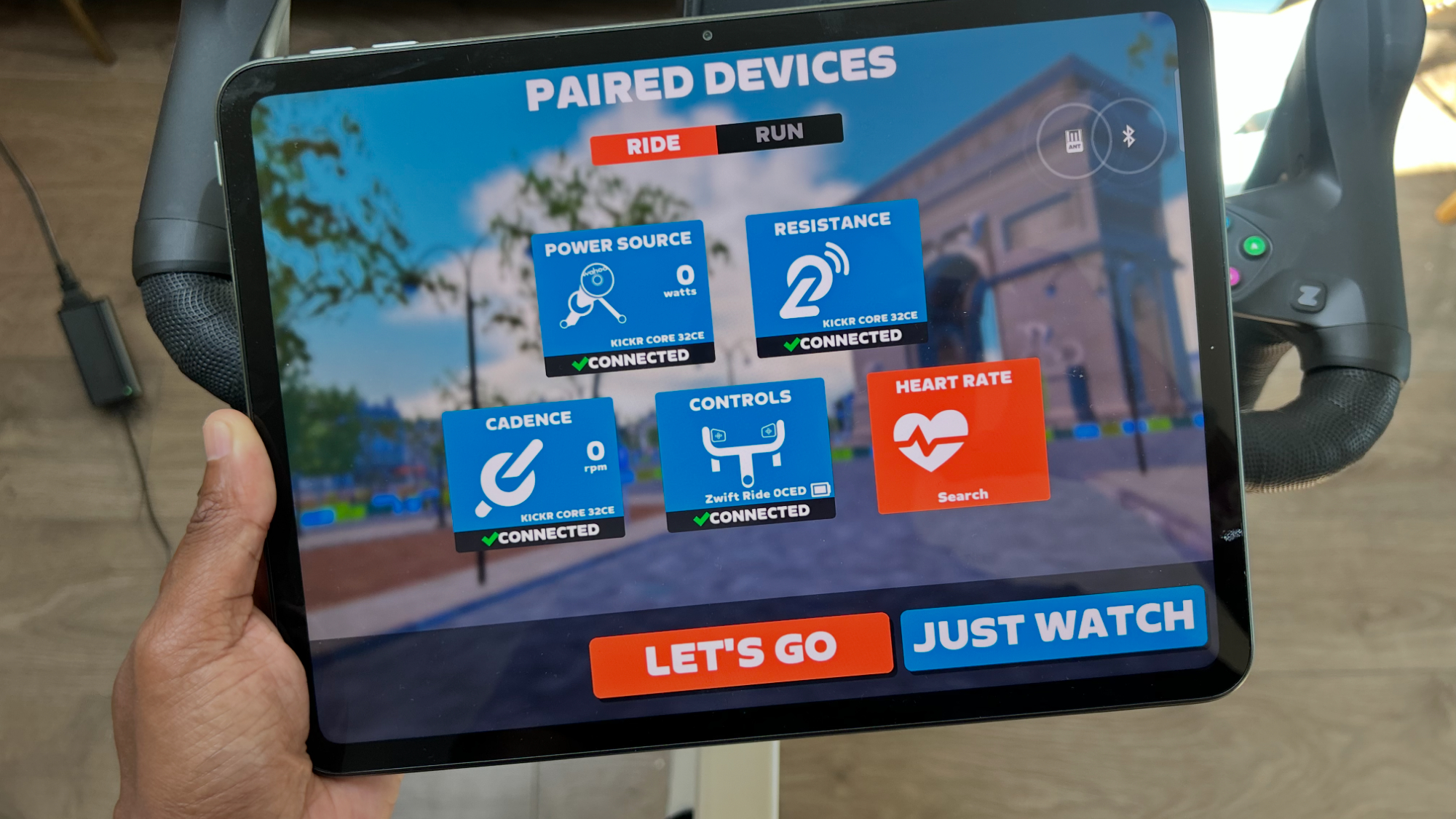
In addition to those controls, some more discreet ones let you change gears virtually. There are two buttons on either side of the handlebars to take care of that with some customization available to tinker with the gear-changing setup. You also have controls at your disposal that let you steer left or right or brake, these sit slightly larger on the bars. It sounds like a lot to get used to, but once you’ve got a few rides in, you start to get pretty quickly accustomed to everything available at your fingertips.
As mentioned, the handlebar controllers are chargeable. There’s a port on both sides and an accompanying cable that connects via USB, but you’ll need to have your own power supply to plug it into.
In terms of the riding experience, I’m happy to say it’s a pretty smooth one in general. Elements like gear shifting don’t feel labored, and it’s nice to be able to control steering and not have to reach over to a touchscreen to move through menus either. The overall noise of riding, while not whisper-quiet, isn’t so excruciatingly loud that you’re going to annoy your neighbors when you’re pedaling hard. I had some concerns about having to connect multiple devices at once to one device running the Zwift software, but thankfully that wasn’t an issue and I didn’t experience any irritating dropouts from the Ride’s components. No, the controls don’t scream authentic bike controls, but for someone who’s not a seasoned Zwift user, I understand the approach and it helps to make it a much less daunting setup to ride with.
So, is it good?
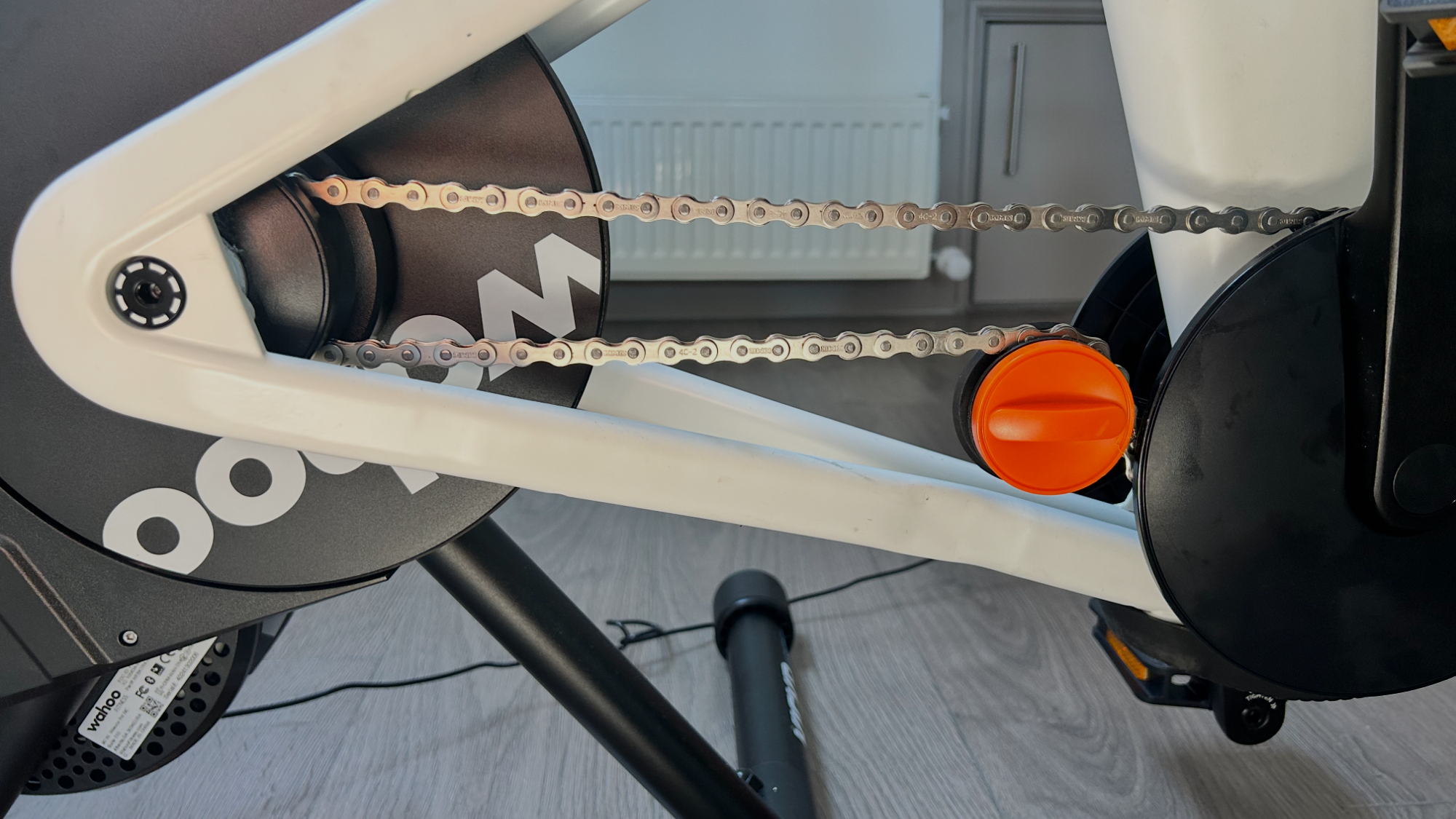
As someone whose main sporting love doesn’t lie with cycling (running is my discipline of choice), but does like to throw in some indoor cycling time to mix things up, I enjoyed my time on the Zwift Ride. It takes the effort of trying to piece a similar setup together that might end up costing more in the process and makes it much easier to want to jump into that Zwift world and go for a ride.
In my eyes, it’s absolutely an indoor cycling setup that has beginners and newcomers in mind and I don’t think there’s anything wrong with that. I do still think more experienced indoor riders will enjoy the experience too, appreciate the price point, and be largely happy on the performance and accuracy front. The lack of full support for virtual cycling training platforms outside of Zwift may be a stumbling block for some, you will need to commit to that Zwift subscription and I’d suggest grabbing a tablet holder as well.
The Zwift software is slick and if you’re trying to get into indoor riding, whether to get fit or to join other riders for a more social riding experience, the Ride can definitely make the decision of going for a virtual ride a much easier one.


